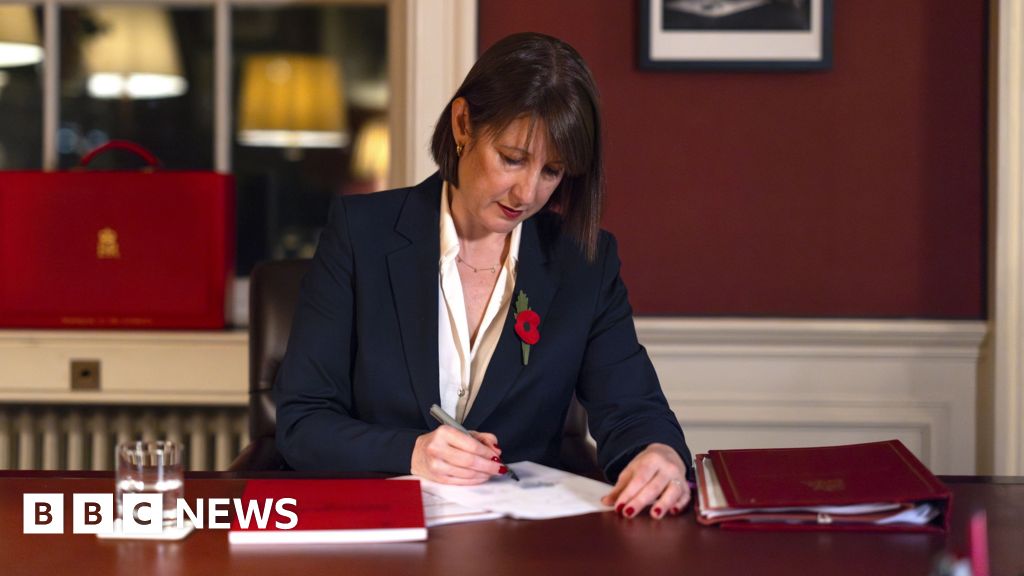Politics
I used to conserve artworks. Now I am in prison for taking climate action | Margaret Reid
I used to be part of the art world but I just can’t stomach it any more. Now I’m in prison, and it suits my conscience better. Back in the 1980s, art was my life. Aged 16, I fell head over heels for painting and could imagine nothing better than spending my life working in museums.
Looking back almost 40 years, I see my younger self, starstruck in Paris. I’m staring up with awe at Théodore Géricault’s The Raft of the Medusa and greedily gobbling up the story of how it scandalised the art world. That sickening green cadaver that almost fell out of the frame had me weeping with admiration. Of course it shocked the critics. They hated the grisly truth: the emaciated corpse that was a direct challenge to government corruption and incompetence.
This was a history painting that focused on something scandalous, current and controversial. It exposed the government nepotism and corruption that placed an incompetent captain in charge of a navy frigate that was subsequently shipwrecked. There were insufficient lifeboats, and he and his fellow officers saved themselves, abandoning the lower-class crew to death by murder, cannibalism, starvation.
Géricault thrust this gruesome horror right in front of polite society’s eyes. He starkly showcased the extreme individual suffering that results from political corruption and self-centred individualism. I was bowled over by the realisation that art could be a mechanism to expose horror and greed, that it could stir up the social soup, shock, shake, prod, horrify, question and provoke change. You won’t be remotely surprised to learn that the painting was only fully appreciated after Géricault’s death.
But, as my younger self worked towards building a future among masterpieces such as this, I was not even aware of another brutal and insidious tale of corruption that was unfolding unseen. Fossil-fuel companies were covering up the consequences of the deadly activities that brought them unspeakable profit at the expense of everyone else. They knew unbridled consumption of fossil fuels would cause mass death and devastation to the natural world, but forged ahead regardless while most of us carried on in ignorant bliss.
Working in museums and historic houses for more than 25 years, as a curator, a collections manager, a registrar and a conservation cleaner, it was my job to care for irreplaceable precious things. Sometimes I was accompanying a glamorous be-ruffed Van Dyck to an exhibition. Maybe I was carefully packing a dirty, broken shoe telling the tale of a nameless working woman. I cleaned out gutters and drains to prevent leaks, trained staff to evacuate or protect historical objects in the event of fire or flood, scrutinised temperature and relative humidity readings, adjusted blinds to stop the slightest hint of destructive sunlight, consulted security experts on the latest anti-crime gadgets. My colleagues and I aimed always to manage the natural process of deterioration and do all in our power to slow it down so these objects could be preserved for future generations.
What the hell were we thinking? What a phenomenal waste of time, while the bodies are piling up right now with suffering written all over them, just like Géricualt’s emaciated, shipwrecked corpse.
As I was lovingly protecting these artefacts from deterioration, fossil-fuel executives were violently accelerating the process of destruction of the entire natural world. In league with politicians, financiers and industry leaders, they were busily destroying the very future that I was preserving these things for.
Real flames are licking at your security doors right now and the dirty waters are rising. Do we just pose chatting at exhibition openings as freak, unseasonable weather pushes the stark reality of climate breakdown right in front of our faces? While our gutters are overwhelmed by downpours, while our collections are destroyed by ravenous new species of pests? When climatic conditions around half the world make it too dangerous to live, let alone lend masterpieces to international exhibitions? When flash floods sweep away entire libraries and wildfires raze historic towns to the ground?
Art world, how can you put on exhibitions celebrating the centenary of the suffragettes, then close ranks over some tomato soup? Where are your morals? Where is your true forward-planning? Where is your truth-telling, your revolutionary zeal? Cause a stink, make a rumpus, expose the filth and rotting flesh – just like the artists whose work you care for so beautifully. Be bold, do it now, right now, before your precious collections, careers and private-view canapes are swept away by the tsunami of climate collapse. Listen to those who tell the truth. Use your power as directors of taste and culture to expose the stink of individual pain that is the true cost of international corruption.
I am in prison for taking climate action, for calling out governments and the business leaders who are pushing us towards death. I would rather not be locked up. But if it is a choice between being here for standing up to the destructive forces of the fossil-fuel industry and staying free but wasting time with business as usual and the warped values that place art over life, then I’ll take incarceration any time.
-
Do you have an opinion on the issues raised in this article? If you would like to submit a response of up to 300 words by email to be considered for publication in our letters section, please click here.
Politics
A big Budget – for tax, borrowing and spending

This will be a big Budget.
Big tax rises, big borrowing, big spending.
And big politically – because it will set the political landscape for the years to come.
Chancellor Rachel Reeves will promise that she will “invest, invest, invest” and will tell the Commons: “My belief in Britain burns brighter than ever.
“More pounds in people’s pockets. An NHS that is there when you need it.
“An economy that is growing, creating wealth and opportunity for all.”
Note the upbeat tone, after no shortage of the bleak from ministers recently.
The government is also emphasising that it is “protecting working people’s payslips” – which is code for National Insurance paid by employers, rather than employees, going up – one of the biggest rows of the last few weeks.
Expect Labour to try to use this Budget to attempt to open up a political dividing line with the Conservatives – rather similar to the one Gordon Brown tried a decade and a half ago – where they advocate what they call “investment”, ie spending, and contrast that with what they will label the “decline” offered by the Tories.
Conservative leader Rishi Sunak – on his last big day in the job before his successor is elected on Saturday – will, unsurprisingly, strongly criticise the Chancellor later.
“She’s called National Insurance a ‘jobs tax’ which ‘takes money out of people’s pockets’,” he says.
“And worst of all, she said the problem with National Insurance ‘is that it is a tax purely on people who go to work and those who employ them’.
“Far from protecting working people she would be raising literally the only major tax that specifically hits working people.”
It is expected the Liberal Democrats will focus on social care and the availability of GP and dentist appointments in their response to the Budget.
It is 14 years and seven months since a Labour Chancellor waved the Budget Red Box on the step of 11 Downing Street.
Wednesday 24 March 2010 was the day of Alistair Darling’s third Budget, delivered on the eve of an election campaign Labour would go on to lose.
Incidentally, what was the most expensive measure that day? A promise, costing £600m, to increase the Winter Fuel Allowance for another year.
A Labour idea that would continue throughout the coalition and Conservative years of power, only to be cancelled for the vast majority of pensioners when Labour won again back in July.
For 800 years, men have run the nation’s finances. There have been 110 Chancellors since Sir Richard Sackville was appointed in 1559 – a centuries’ long unbroken line of blokes – which includes Henry Bilson Legge (three times chancellor in the 18th century), and William Gladstone, who had four goes at it in the 19th century.
Until, that is, the appointment of Rachel Reeves.
The Conservatives may have managed the first three female prime ministers, with Labour’s record currently zero, but the first Budget from a female Chancellor of the Exchequer is a genuine moment of history.
So, what can we expect?
Well, the big stuff has been talked up in advance – through nods and winks, official briefings and unauthorised leaks.
There are tax rises, expected to include employer National Insurance and inheritance tax.
There is the change in the government’s self-imposed debt rules, so it can borrow a lot more.
There is the rise in the minimum wage.
There is money to rebuild schools in England.
And the plans for new equipment for the NHS, such as scanners and radiotherapy machines.
Expect a lot of talk from Rachel Reeves about what she will call “choices”.
Her team see it as a “once in a generation” Budget, where its scale, it is claimed, matches the scale of the challenge they face.
Which is code for the country’s in a mess and they think it’s going to cost a lot to fix it.
The extent to which it is – and whether billions of pounds more of taxpayers’ money are the solution – are the open questions.
Politics
Ex-Tory MP reprimanded for ‘brazen’ sexual misconduct | House of Commons
A former Conservative MP has been reprimanded for “brazen and drunken” sexual misconduct in one of parliament’s bars.
Aaron Bell, who was the Tory MP for Newcastle-under-Lyme until July, was found by a parliamentary watchdog to have “abused his position of power” by touching a woman “on her left thigh, waist and bottom inappropriately and without her consent”.
The incident took place in parliament’s Strangers’ bar in December 2023.
The independent expert panel (IEP), which decides on sanctions for those found guilty of misconduct, said it would have considered suspending Bell from parliament “for a significant period” if he were still an MP.
In a statement responding to the IEP’s report, Bell apologised “for any upset caused to the complainant” and to his former constituents, and said the investigation was one of the reasons he chose not to seek re-election this summer.
The report said Bell had “abused his position of power over the complainant” as he was considerably older than her, an elected MP and government whip. It said the complainant, a young female member of staff, “felt targeted” and feared “considerable adverse impacts on her career if she made a complaint”.
The Mirror reported last month that onlookers had spotted Bell being escorted out of a party at the Conservative party conference in Birmingham.
The IEP’s report follows a complaint made to parliament’s independent complaints and grievance scheme in February 2024, which was upheld after an investigation.
The Guardian has contacted Bell for comment. In a statement issued via the Conservative party, he said: “I am disappointed at the outcome of the investigation but have chosen not to appeal the findings of the commissioner.
“I apologise for any upset caused to the complainant and wish to make it clear that I did not intend to cause any distress. This investigation was one of the reasons I chose not to seek re-election at the general election – I have let down the loyal members of my association and thank them for the support they gave me as a Member of Parliament. I would also like to apologise to the people of Newcastle-under-Lyme, whom it was an honour to serve.
“This has been a difficult time for my family and I would ask that their privacy is respected at this time.”
Politics
Asylum seekers moved off Dorset barge

 PA Media
PA MediaHundreds of asylum seekers onboard the Bibby Stockholm have been moved off the barge ahead of decisions on whether they can stay in the UK.
Around 300 residents have already been moved, with around a further 100 still on board, the BBC understands.
Once in temporary accommodation, they are then told if they have been granted leave to remain in the UK.
If successful, they have 30 days to find somewhere to live.
It was previously announced the contract for the Bibby Stockholm, which is moored off Portland in Dorset, would expire in January 2025.
The Home Office confirmed that when the asylum seekers – who are all men – left the barge, none of them would be moved to Portland, Weymouth, or the wider Dorset Council area.
They would instead be “dispersed across the country”, it continued.
Campaigners helping the asylum seekers say they have seen them sent to places including Cardiff, Wolverhampton, Bristol and Worksop.
Giovanna Lewis from the Portland Global Friendship Group, which has been supporting the residents of the Bibby, said: “The men are taken individually by taxi to their new accommodation around the country, where they stay for three or four weeks supported by the Home Office until the decision on their status is made.
“If they are given the right to remain they have 30 days to find alternative accommodation. If they are refused they have the right to appeal and are supported while that appeal takes place.”
In a statement, a Home Office spokesperson said: “This government inherited an asylum system under unprecedented strain, with thousands stuck in a backlog without their claims processed.
“We have taken immediate action to restart asylum processing which will save an estimated £7 billion for the tax payer over the next ten years, and are delivering a major uplift in returns to remove people with no right to be in the UK. Over the long term this will reduce our reliance on hotels and costs of accommodation.
“We remain absolutely committed to ending the use of hotels for asylum seekers.”
Politics
Chris Packham settles net zero legal action against government

Chris Packham has reached a settlement with the government over two legal challenges against its decision to remove or delay some environmental policies.
The TV presenter took legal action against the previous Conservative government in late 2023, arguing it acted unlawfully by delaying some policies aimed at helping the UK reaching net zero emissions by 2050.
Law firm Leigh Day said Packham had reached “a legal settlement” with the new Labour government that said the Tory administration “had acted unlawfully” by axing or watering down climate policies.
The government said it had settled both cases as it would reconsider the decisions as it updates its carbon budget delivery plan (CBDP).
The CBDP aims to outline how the UK will reach targets set out in the sixth carbon budget, which runs until 2037, as part of wider efforts to reach net zero greenhouse gas emissions by 2050.
In 2023, the previous Prime Minister Rishi Sunak announced that several schemes in the CBDP would be dropped or rolled back – prompting Packham’s legal challenge.
The revised measures included delaying the ban on the sale of new diesel and petrol cars from 2030 to 2035, reducing the phase-out of gas boilers from 100% to 80% by 2035, and scrapping the requirement for energy efficiency upgrades for homes.
At the time, Sunak said the UK’s approach to meeting its net zero target was imposing “unacceptable costs on hard-pressed British families”, amid a cost of living crisis exacerbated by higher energy prices.
In May, a High Court judge ruled that the government acted unlawfully by approving the scaled-back CBDP, finding the decision was “simply not justified by the evidence”.
In a statement, Packham described the previous government’s decisions as “reckless and irresponsible short-termism” and said he was “very pleased” that the new government had “pledged to do better”.
The nature presenter and environmentalist will also meet with energy and net zero secretary Ed Miliband “to discuss future progress addressing climate breakdown”, his lawyers said.
A hearing due to take place in November at the High Court will now not go ahead, Leigh Day confirmed.
A Department for Energy Security and Net Zero (DESNZ) spokesman said: “We have carefully considered the two legal cases launched by Chris Packham against the government in November 2023 and May 2024.
“We have now settled both cases, on the basis we reconsider the challenged decisions as part of our work to update our carbon budget delivery plan.”
Politics
The Guardian view on Rishi Sunak’s exit: fated to be a forgotten prime minister | Editorial
Rishi Sunak has kept the lowest of public profiles since leaving Downing Street in July. As leader of the opposition, he has made only essential Commons appearances. Although party leader, he barely attended the Conservative conference at all. If he had called the election as late as some assumed he would, Mr Sunak might still be prime minister today. Instead, you could be forgiven for having almost forgotten him.
From this weekend, though, when either Kemi Badenoch or Robert Jenrick will take over, Mr Sunak will become history. His Commons reply to Rachel Reeves’ budget speech on Wednesday is his last important appearance as party leader. After that, who knows? It seems unlikely that Mr Sunak will want to serve in the new shadow cabinet. During the election campaign, he promised he would stay as an MP for a full parliamentary term. Many nevertheless assume, though, that he will quit Westminster much sooner, perhaps for California.
Mr Sunak has had a remarkably brief career at the summit of British politics. He only became an MP for the first time nine years ago, succeeding William Hague in 2015 in the North Yorkshire seat now called Richmond and Northallerton. Three years later he was a junior minister, and a year after that a cabinet minister. In 2020 he was chancellor, and in 2022 prime minister. Still only 44, he is now quietly closing the political door as he leaves altogether, but with perhaps half of his life in front of him.
Mr Sunak’s eventual fate may be as one of Britain’s less celebrated prime ministers. But he should be remembered for three things. One is as Britain’s first ever Hindu prime minister, and our first of Asian heritage. By any standards, this was a formidable achievement, of which he is rightly proud, as this country can also be. The second was his family riches. The third is as the man who led the Tory party to its worst election defeat in parliamentary history, losing 251 seats and being reduced to 121 MPs.
Mr Sunak made mistakes that made the 2024 debacle worse. He had no enthusiasm for either levelling up or decarbonisation. But he also faced an impossible task when he took over in 2022. Boris Johnson’s authority had been destroyed by Partygate, while Liz Truss’s blew up just as she launched. The post-Brexit Tory party was probably unmanageable under any leader, let alone one with minimal room for manoeuvre. Even so, Mr Sunak was probably the party’s least bad option at the time.
The worm in the bud, though, was his deep belief in deregulation and small government, just at a time when the public demanded an end to both. Paradoxically, this belief endured in spite of his own embrace, as chancellor, of increased state spending to protect the economy during Covid and to cap energy price increases caused by the Ukraine war. But Conservative ideological fixation meant that this paved the way for Labour’s victory, not a Tory recovery.
In the end, Mr Sunak is departing for the same reason that his party lost. Neither he nor it had convincing solutions to what their doctrines had actually done to Britain: its ever-growing wealth gulf, its lack of investment and productivity, and its shockingly depleted public realm; the very things that this week’s budget must now address. Like his would-be successors, Mr Sunak offered only the same old same old. He was a historic figure. But he was out of touch with history.
Politics
Minimum wage to rise to £12.21 an hour next year

 Getty Images
Getty ImagesMinimum wages will rise in April, with hourly rates for over-21s set to go up to £12.21 an hour, the chancellor has confirmed ahead of Wednesday’s Budget.
Rachel Reeves said the pay boost marked a “significant step” towards achieving its promise of a “genuine living wage” for workers.
Employees aged 18 to 20 and apprentices will also see their minimum hourly pay increase.
The government said more than three million workers will benefit, but firms have warned the higher cost could mean they have to cut back on hiring.
How much is the minimum wage going up by?
- The minimum wage for over 21s, known officially as the National Living Wage, will rise by 6.7%, from £11.44 to £12.21 from April 2025. This year, it increased to £11.44 an hour, from £10.42.
- For 18 to 20-year-olds, the minimum wage will rise from £8.60 to £10. In April this year, the rate was increased from £7.49.
- Apprentices will get the biggest pay bump, from £6.40 to £7.55 an hour. Prior to this year, it was £5.28.
The Treasury said a big hike in the minimum wage for under-21s – the largest on record – marked the first step towards a single rate for all adults.
It comes after the government instructed the Low Pay Commission, which recommends minimum wage rates, to include the cost of living in its calculations.
The rates for the National Living Wage and National Minimum Wage are set by the government every year, with the new rates taking effect the following April.
Nye Cominetti, principal economist at the Resolution Foundation think tank, said that while the increase was “good news” for lower earners, the 77p uplift for workers over the age of 21 was smaller than each of the last two years.
But she said the smaller rise was “sensible” in the context of the expected rise in National Insurance contributions for employers in the Budget.
Business owners, particularly smaller ones, have voiced concerns over the impact of higher wage bills and workers’ rights reforms.
Christine Dobson Moore, the owner of the Sanwitches Cafe in Sabden, near Burnley, said her firm is already struggling to pay its employees.
“It’s quieter than it used to be, to be honest,” she said. “A lot of the politicians haven’t lived in the real world, they’re not us.”

‘Higher than we thought’
Kate Nicholls, chief executive of trade group UK Hospitality, said businesses would be approaching the Budget with “even more trepidation” following the announcement of minimum wage increases.
“Trying to balance the books from the pockets of high street businesses will simply leave hospitality as collateral damage – threatening jobs, future investment, price increases for consumers, and business viability,” she said.
Nick Mackenzie, the boss of pub chain Greene King, told the BBC’s Today programme the rise in the minimum was was “slightly higher than we were envisaging”.
But he stressed it was the “cumulative effect” of costs rising for businesses that was “critical” to the industry.
Asked if rising costs to pay for higher wages and taxes would lead to job cuts and less investment, Mr Mackenzie said: “If you keep pushing costs into business then that is going to happen.”
But Paul Nowak, general secretary of the Trades Union Congress, said: “Every time the minimum wage goes up there are some voices who predict this will drive up unemployment. Every time they are wrong.”
Claire Reindorp, chief executive of Young Women’s Trust, also supported the rise, stating that women were “more likely to be in low-paid work, so for too long they’ve been at the sharp end of the financial crisis in this country”.
There has been speculation over the tax rises Labour will announce, with Reeves claiming there is a £22bn “hole” in the public finances to be addressed.
National Insurance, paid by employers on top of the wages they pay out, is one of several taxes which are expected to hiked by the chancellor to boost funding for public services, including the NHS.
Employers currently pay a rate of 13.8% on a worker’s earnings above £175 a week.
But Reeves is also expected to to lower the threshold for when employers start paying the tax. The two measures combined are expected to raise about £20bn.
The move is thought to be the single largest revenue raiser of the Budget.
It has also raised questions over a potential knock-on effect when the government has said growing the UK economy is a top priority.
Businesses have warned burdening them with extra costs will make investing, hiring staff and creating jobs harder.
In some cases, firms could pass on the increased costs through higher prices to customers, but workers’ wage rises could be restricted as employers look for savings.
Melanie Pizzey, chief executive of the Global Payroll Association, the industry body for payroll professionals, suggested that businesses might limit pay rises for workers earning more than the minimum wage as they seek to keep costs down.
-

 Science & Environment1 month ago
Science & Environment1 month agoHow to unsnarl a tangle of threads, according to physics
-

 Technology1 month ago
Technology1 month agoIs sharing your smartphone PIN part of a healthy relationship?
-

 Science & Environment1 month ago
Science & Environment1 month agoHyperelastic gel is one of the stretchiest materials known to science
-

 Science & Environment1 month ago
Science & Environment1 month ago‘Running of the bulls’ festival crowds move like charged particles
-

 Technology1 month ago
Technology1 month agoWould-be reality TV contestants ‘not looking real’
-

 Science & Environment1 month ago
Science & Environment1 month agoMaxwell’s demon charges quantum batteries inside of a quantum computer
-

 Science & Environment1 month ago
Science & Environment1 month agoX-rays reveal half-billion-year-old insect ancestor
-

 Science & Environment1 month ago
Science & Environment1 month agoSunlight-trapping device can generate temperatures over 1000°C
-

 Technology4 weeks ago
Technology4 weeks agoUkraine is using AI to manage the removal of Russian landmines
-

 Science & Environment1 month ago
Science & Environment1 month agoLiquid crystals could improve quantum communication devices
-

 Technology4 weeks ago
Technology4 weeks agoGmail gets redesigned summary cards with more data & features
-

 Football4 weeks ago
Football4 weeks agoRangers & Celtic ready for first SWPL derby showdown
-

 Sport4 weeks ago
Sport4 weeks agoBoxing: World champion Nick Ball set for Liverpool homecoming against Ronny Rios
-

 Science & Environment1 month ago
Science & Environment1 month agoPhysicists have worked out how to melt any material
-

 Science & Environment1 month ago
Science & Environment1 month agoQuantum ‘supersolid’ matter stirred using magnets
-

 Science & Environment1 month ago
Science & Environment1 month agoLaser helps turn an electron into a coil of mass and charge
-

 TV4 weeks ago
TV4 weeks agoসারাদেশে দিনব্যাপী বৃষ্টির পূর্বাভাস; সমুদ্রবন্দরে ৩ নম্বর সংকেত | Weather Today | Jamuna TV
-

 Technology4 weeks ago
Technology4 weeks agoSamsung Passkeys will work with Samsung’s smart home devices
-

 Technology1 month ago
Technology1 month agoRussia is building ground-based kamikaze robots out of old hoverboards
-

 Science & Environment1 month ago
Science & Environment1 month agoA new kind of experiment at the Large Hadron Collider could unravel quantum reality
-

 MMA4 weeks ago
MMA4 weeks agoDana White’s Contender Series 74 recap, analysis, winner grades
-

 News4 weeks ago
News4 weeks ago‘Blacks for Trump’ and Pennsylvania progressives play for undecided voters
-

 Sport4 weeks ago
Sport4 weeks agoAaron Ramsdale: Southampton goalkeeper left Arsenal for more game time
-

 News4 weeks ago
News4 weeks agoMassive blasts in Beirut after renewed Israeli air strikes
-

 News3 weeks ago
News3 weeks ago▶ Hamas Spent $1B on Tunnels Instead of Investing in a Future for Gaza’s People
-

 MMA3 weeks ago
MMA3 weeks ago‘Uncrowned queen’ Kayla Harrison tastes blood, wants UFC title run
-

 News3 weeks ago
News3 weeks agoNavigating the News Void: Opportunities for Revitalization
-

 Technology4 weeks ago
Technology4 weeks agoEpic Games CEO Tim Sweeney renews blast at ‘gatekeeper’ platform owners
-

 Football4 weeks ago
Football4 weeks agoWhy does Prince William support Aston Villa?
-

 MMA4 weeks ago
MMA4 weeks agoPereira vs. Rountree prediction: Champ chases legend status
-

 Technology1 month ago
Technology1 month agoWhy Machines Learn: A clever primer makes sense of what makes AI possible
-

 Science & Environment1 month ago
Science & Environment1 month agoWhy this is a golden age for life to thrive across the universe
-

 News4 weeks ago
News4 weeks agoWoman who died of cancer ‘was misdiagnosed on phone call with GP’
-

 Business4 weeks ago
Business4 weeks agoWhen to tip and when not to tip
-

 Technology4 weeks ago
Technology4 weeks agoMicrophone made of atom-thick graphene could be used in smartphones
-

 Technology4 weeks ago
Technology4 weeks agoMusk faces SEC questions over X takeover
-

 Sport4 weeks ago
Sport4 weeks agoWales fall to second loss of WXV against Italy
-

 Science & Environment1 month ago
Science & Environment1 month agoITER: Is the world’s biggest fusion experiment dead after new delay to 2035?
-

 Womens Workouts1 month ago
Womens Workouts1 month ago3 Day Full Body Women’s Dumbbell Only Workout
-

 News4 weeks ago
News4 weeks agoRwanda restricts funeral sizes following outbreak
-
Business4 weeks ago
DoJ accuses Donald Trump of ‘private criminal effort’ to overturn 2020 election
-

 News4 weeks ago
News4 weeks agoCornell is about to deport a student over Palestine activism
-

 Technology4 weeks ago
Technology4 weeks agoMicrosoft just dropped Drasi, and it could change how we handle big data
-

 Money4 weeks ago
Money4 weeks agoWetherspoons issues update on closures – see the full list of five still at risk and 26 gone for good
-

 Sport4 weeks ago
Sport4 weeks agoMan City ask for Premier League season to be DELAYED as Pep Guardiola escalates fixture pile-up row
-

 Science & Environment1 month ago
Science & Environment1 month agoQuantum forces used to automatically assemble tiny device
-

 Science & Environment1 month ago
Science & Environment1 month agoA slight curve helps rocks make the biggest splash
-

 Science & Environment1 month ago
Science & Environment1 month agoNuclear fusion experiment overcomes two key operating hurdles
-

 News1 month ago
News1 month ago▶️ Hamas in the West Bank: Rising Support and Deadly Attacks You Might Not Know About
-

 Technology1 month ago
Technology1 month agoMeta has a major opportunity to win the AI hardware race
-

 Technology4 weeks ago
Technology4 weeks agoCheck, Remote, and Gusto discuss the future of work at Disrupt 2024
-

 MMA3 weeks ago
MMA3 weeks ago‘I was fighting on automatic pilot’ at UFC 306
-

 Sport4 weeks ago
Sport4 weeks ago2024 ICC Women’s T20 World Cup: Pakistan beat Sri Lanka
-

 Sport4 weeks ago
Sport4 weeks agoChina Open: Carlos Alcaraz recovers to beat Jannik Sinner in dramatic final
-

 MMA4 weeks ago
MMA4 weeks agoKayla Harrison gets involved in nasty war of words with Julianna Pena and Ketlen Vieira
-

 MMA3 weeks ago
MMA3 weeks agoKetlen Vieira vs. Kayla Harrison pick, start time, odds: UFC 307
-

 News4 weeks ago
News4 weeks agoGerman Car Company Declares Bankruptcy – 200 Employees Lose Their Jobs
-

 Technology4 weeks ago
Technology4 weeks agoTexas is suing TikTok for allegedly violating its new child privacy law
-

 Sport4 weeks ago
Sport4 weeks agoSturm Graz: How Austrians ended Red Bull’s title dominance
-

 News4 weeks ago
News4 weeks agoHull KR 10-8 Warrington Wolves – Robins reach first Super League Grand Final
-

 MMA3 weeks ago
MMA3 weeks ago‘Dirt decision’: Conor McGregor, pros react to Jose Aldo’s razor-thin loss at UFC 307
-

 Science & Environment1 month ago
Science & Environment1 month agoNerve fibres in the brain could generate quantum entanglement
-

 Business4 weeks ago
Business4 weeks agoStocks Tumble in Japan After Party’s Election of New Prime Minister
-
Business4 weeks ago
how UniCredit built its Commerzbank stake
-
Business4 weeks ago
Sterling slides after Bailey says BoE could be ‘a bit more aggressive’ on rates
-

 News4 weeks ago
News4 weeks agoFamily plans to honor hurricane victim using logs from fallen tree that killed him
-
Business4 weeks ago
The search for Japan’s ‘lost’ art
-

 Technology3 weeks ago
Technology3 weeks agoIf you’ve ever considered smart glasses, this Amazon deal is for you
-

 Sport4 weeks ago
Sport4 weeks agoCoco Gauff stages superb comeback to reach China Open final
-

 Entertainment3 weeks ago
Entertainment3 weeks agoNew documentary explores actor Christopher Reeve’s life and legacy
-
Business4 weeks ago
Bank of England warns of ‘future stress’ from hedge fund bets against US Treasuries
-

 Technology4 weeks ago
Technology4 weeks agoThis AI video generator can melt, crush, blow up, or turn anything into cake
-

 Football4 weeks ago
Football4 weeks ago'Rangers outclassed and outplayed as Hearts stop rot'
-

 Sport4 weeks ago
Sport4 weeks agoPremiership Women’s Rugby: Exeter Chiefs boss unhappy with WXV clash
-

 Technology4 weeks ago
Technology4 weeks agoThe best budget robot vacuums for 2024
-

 Science & Environment1 month ago
Science & Environment1 month agoTime travel sci-fi novel is a rip-roaringly good thought experiment
-

 News1 month ago
News1 month ago▶️ Media Bias: How They Spin Attack on Hezbollah and Ignore the Reality
-

 Science & Environment1 month ago
Science & Environment1 month agoHow to wrap your mind around the real multiverse
-

 Business4 weeks ago
Business4 weeks agoChancellor Rachel Reeves says she needs to raise £20bn. How might she do it?
-

 MMA4 weeks ago
MMA4 weeks agoJulianna Peña trashes Raquel Pennington’s behavior as champ
-

 Technology4 weeks ago
Technology4 weeks agoOpenAI secured more billions, but there’s still capital left for other startups
-

 Sport3 weeks ago
Sport3 weeks agoWXV1: Canada 21-8 Ireland – Hosts make it two wins from two
-

 Technology4 weeks ago
Technology4 weeks agoJ.B. Hunt and UP.Labs launch venture lab to build logistics startups
-

 Business4 weeks ago
Business4 weeks agoWater companies ‘failing to address customers’ concerns’
-
Business4 weeks ago
Head of UK Competition Appeal Tribunal to step down after rebuke for serious misconduct
-

 Business4 weeks ago
Business4 weeks agoStark difference in UK and Ireland’s budgets
-

 Technology4 weeks ago
Technology4 weeks agoLG C4 OLED smart TVs hit record-low prices ahead of Prime Day
-

 Technology3 weeks ago
Technology3 weeks agoThe best shows on Max (formerly HBO Max) right now
-
Politics4 weeks ago
Rosie Duffield’s savage departure raises difficult questions for Keir Starmer. He’d be foolish to ignore them | Gaby Hinsliff
-

 Health & fitness4 weeks ago
Health & fitness4 weeks agoNHS surgeon who couldn’t find his scalpel cut patient’s chest open with the penknife he used to slice up his lunch
-

 Money4 weeks ago
Money4 weeks agoPub selling Britain’s ‘CHEAPEST’ pints for just £2.60 – but you’ll have to follow super-strict rules to get in
-

 MMA3 weeks ago
MMA3 weeks agoPereira vs. Rountree preview show live stream
-

 Sport4 weeks ago
Sport4 weeks agoWorld’s sexiest referee Claudia Romani shows off incredible figure in animal print bikini on South Beach
-

 Football4 weeks ago
Football4 weeks agoSimo Valakari: New St Johnstone boss says Scotland special in his heart
-
Business4 weeks ago
Top shale boss says US ‘unusually vulnerable’ to Middle East oil shock
-

 Technology4 weeks ago
Technology4 weeks agoApple iPhone 16 Plus vs Samsung Galaxy S24+
-

 News4 weeks ago
News4 weeks agoSpongerla Rayner’s gift gluttony is worse than Free Gear Keir’s – her freeloading has destroyed working class reputation
-

 MMA4 weeks ago
MMA4 weeks agoUFC 307 preview show: Will Alex Pereira’s wild ride continue, or does Khalil Rountree shock the world?
-
Business4 weeks ago
Champagne days for F1
-

 Sport3 weeks ago
Sport3 weeks agoNew Zealand v England in WXV: Black Ferns not ‘invincible’ before game


You must be logged in to post a comment Login